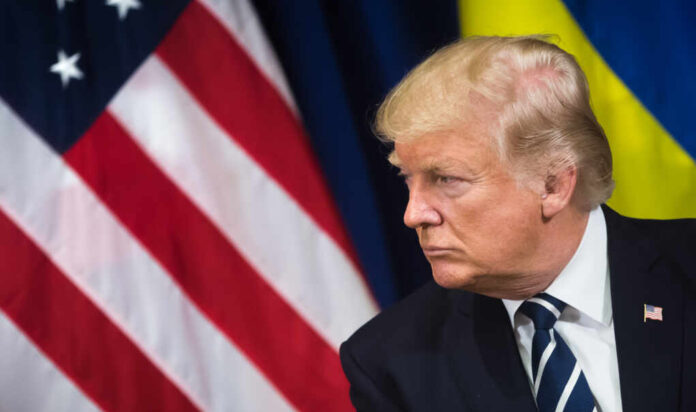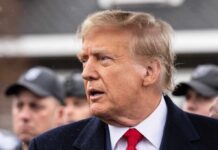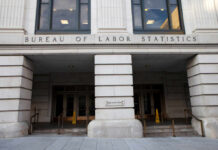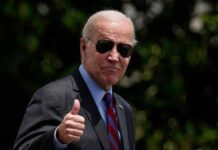
President Donald Trump is standing firm against what many see as a violation of his First Amendment rights. In an unprecedented move, U.S. District Court Judge Tanya Chutkan, appointed by President Obama, issued a gag order preventing Trump from publicly criticizing specific individuals connected to his indictment over allegations he attempted to interfere with the 2020 election results.
Posting on his Truth Social platform, Trump expressed his frustration and intent to fight back, writing: “WILL APPEAL THE GAG ORDER RULING. WITCH HUNT!” Later, during a campaign event in Adel, Iowa, he echoed these sentiments, saying, “I’ll be the only politician in history that runs with a gag order where I’m not allowed to criticize people. Can you imagine this? It’s so unconstitutional.”
MSNBC CORRESPONDENT On Trump Gag Order: "They're really putting on stark display the clash here between the First Amendment – And a judge's interest in keeping an orderly courtroom…
Donald Trump's lawyers say they will immediately appeal this order and there's every reason to… pic.twitter.com/HpGsiiCW8c
— Daily Caller (@DailyCaller) October 16, 2023
Though Judge Chutkan argued that Trump’s status as a presidential candidate didn’t provide him a “blank check” to launch a “smear campaign,” there’s a growing sentiment that the gag order pushes the boundaries of legality. Notably, the restriction doesn’t stop Trump from critiquing Joe Biden or claiming the prosecution is politically driven. However, the order’s parameters seemingly stifle a significant portion of Trump’s campaign messaging.
This decision resulted from a Justice Department (DOJ) request, aiming to deter Trump from making “disparaging, inflammatory, and intimidating remarks” about the case. While the DOJ contends that these measures are essential to ensure a fair trial, many supporters and legal experts argue it’s an overreach, suggesting it curtails Trump’s free speech rights, especially as a presidential candidate.
TRUMP TO APPEAL: Former President Trump said Monday he is going to appeal a gag order in which a federal judge prohibited him from making public statements attacking witnesses and specific prosecutors. MORE: https://t.co/u6KuvmowrC pic.twitter.com/ziFGhoESga
— NEWSMAX (@NEWSMAX) October 17, 2023
Zach Smith, a Heritage Foundation legal fellow, emphasized the situation’s gravity. He stated, “Not only have we never before had a former president or leading presidential candidate being indicted, but we’ve also never had a leading presidential candidate who has had a gag order issued against him.”
The implications of this gag order extend beyond just Trump. Mike Pence, a contender in the 2024 Republican presidential race and a potential witness in Trump’s trial, is intertwined in this legal web. Although Trump can discuss Pence, he must tread carefully to avoid referencing the case.
Bill Shipley, a former federal prosecutor, pointed out the potential for this case to reach the Supreme Court. Such an action would be groundbreaking and shape future interpretations of First Amendment rights for political candidates.
Kurt Schlichter, a lawyer and columnist for Townhall, didn’t mince words, calling the order a “disgraceful affront to the First Amendment.” Likewise, Article III Project founder Mike Davis criticized the ruling, noting, “Gagging a presidential candidate is what happens in third-world Marxist hellholes.”
As the nation waits for the next developments, Trump’s promise to challenge the ruling exemplifies the ongoing battle between his campaign’s objectives and a judiciary many argue is politically influenced. With Chutkan’s written order expected shortly, this confrontation represents a critical juncture in the evolving relationship between political freedom and judicial oversight.



























